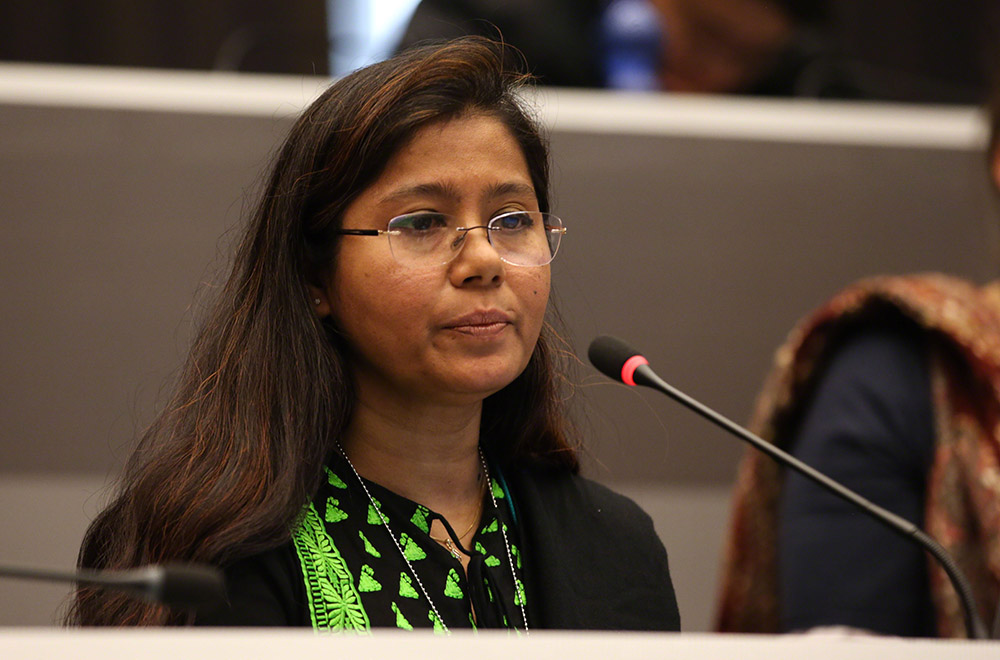“ESDO Urged Develop Country to Stop Dumping Plastic Waste in Developing Nation”

Dhaka, May 05, 2019: ESDO along with CSOs urged the develop countries to stop dumping plastic waste in developing nations and ban single use plastic globally. On behalf of CSOs Siddika Sultana Executive Director, ESDO & Director of Asian Center for Environmental Health made an intervention at BRS COP at Geneva yesterday.
The 2019 meetings of the Conferences of the Parties (COP) to the Basel, Rotterdam, and Stockholm (BRS) Conventions from 29 April – 10 May at Geneva, Switzerland wrapped up the first week with discussions of several waste issues, with extensive time both in plenary and a contact group devoted to work on marine plastic litter and microplastics.
Siddika Sultana in her intervention in the plenary session said “Plastic is literally choking our oceans. Everywhere we look we see the carnage — dead cows, whales washing up with stomachs full of plastic, seabirds suffocating, turtles drowning in plastic nets. And most of the plastic enters the sea in developing countries without strong recycling systems.”
She also added that “why it’s so INSANE that rich countries are shipping their plastic waste to some of these exact countries! Now we have a chance to change it. A coalition of countries led by Norway is pushing to add plastic to a deal on hazardous waste, meaning it couldn’t be exported unless there were safeguards it would be properly processed, and giving developing countries the right to refuse it. We can’t solve the plastic crisis engulfing our oceans while using pristine coastlines as a global plastic dump. So we urge the parties to come forward take a decision.”
Moreover ESDO started war against plastic in 1990, and the initial focus was ban the Plastic Shopping Bag, after 13 years of straggle ESDO win in Bangladesh, and became the 1st country to Ban Plastic Bag in 2002. Now together with numerous countries and billions of voice to “Beat the Plastic Pollution”.
According to the ENB, around 80 delegates waiting to share their views on this complex and highly salient issue at the conferences. Behind the statements, a clear division began to emerge on whether transboundary movement of plastics for recycling is a “problem” or a “solution,” given the varied capacities of countries to manage the volume of plastics and the growing amount of plastics that are of low value and therefore difficult to sell for recycling, or recycle in general.
With widespread support for the Basel Convention to be part of the global effort, delegates discussed possible ways of addressing the issue. Norway presented its proposal, which includes different measures for different types of plastic waste, namely: clean, sorted plastic waste; hazardous plastic waste; and non-hazardous, unsorted, mixed and other plastic waste. One measure discussed at length was the prior informed consent procedure, which would provide information to countries importing plastic waste. Some were concerned that such an additional requirement could impede the ability to send wastes for recycling as a key part of the circular economy.


